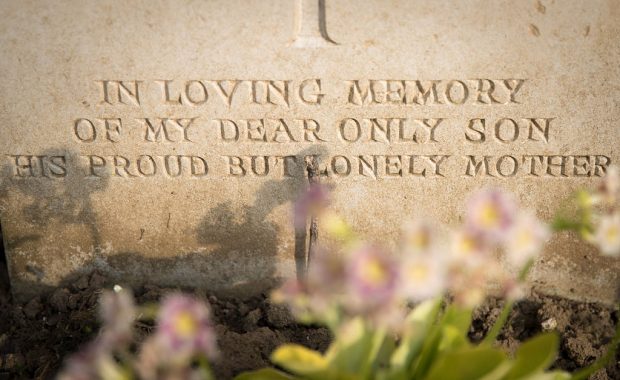This piece first appeared in the Spectator in July 1916:
Our men have advanced with an elan and a spirit to which the history of war affords no parallel. It is a commonplace of esoteric military history that there is a very seamy side to those glories of the assault upon which the ordinary describer of battles loves to dwell. We hear of the rush of the charge, of the cheers, of the officers pressing forward to lead their men and of the men following them to the death. What we seldom hear about is what Milton called the ‘raw edge of war’, of the ten or fifteen per cent. Or more of stragglers who fail to go on—men who do not show anything which can be reasonably called ‘cowardice in face of the enemy,’ but who seize with great alacrity various forms of excuse, legitimate or semi-legitimate, for not advancing. One man shows himself too eager to assist a wounded comrade to the rear, another man sets his face in the wrong direction because of a comparatively trivial wound, or at any rate a wound which would not stop the advance of a man of hardihood and enterprise. Yet another man, or section of men, takes the excuse of some exceptional difficulties of the ground not to push forward.
Finally, there are those who too easily give way to physical exhaustion, who let themselves be overcome by the weariness which attacks all soldiers before such weariness is strictly due. In a word, even the most gallant, well-pressed, and successful of advances has, as a rule, an appreciable stream of stragglers behind it. General Sherman—or was it General Sheridan — who had the happiness to command exceedingly brave and determined soldiers, records somewhere that it was to him always a very trying experience to come from behind upon a body of infantry advancing to the attack. You require, he suggests, all your moral courage not to be depressed by the sight of stragglers facing the wrong way, by men speaking of the impossibilities of keeping on, and of the awful carnage that is going on ‘up there’. Slightly wounded men readily represent this or that company or battalion or brigade as having been ‘utterly wiped out,’ and paint in lurid colours the awful obstacles met by the advancing troops. It is only, says the American commander, when you get close up and see the eighty per cent. of stalwarts who are busy driving the enemy before them that you get rid of the disagreeable impression of disaster formed by going through the inevitable line of stragglers.
Now the amazing, the absolutely unique thing about the battle of the Somme is that there has been literally no ‘raw edge’ to these assaults on fortified positions. the testimony of the correspondents, of the officers, and of the men on this point is in agreement. When one heard it at the beginning of the battle one was delighted, but expected to learn later that it was a picturesque way of emphasizing the great gallantry of our troops. Now, however, that the chroniclers at the front have had time to give us a calm and detailed moral appreciation of the advance, we hear exactly the same story. A correspondent of the Times in a deeply interesting review of the operations published in Thursday’s issue brings out this fact in a passage which deserves the maximum of publicity. He tells us that he has read the reports of battalions, brigades, divisions, corps, and has listened to accounts of the fight from men who were in it, and from those who watched from behind, and then comes his comment : ‘Without exception, everywhere it has been the same story: ‘There were no stragglers’; There was absolutely not a straggler’; ‘Not one straggler—None– None—None!’ Think what that means when the, advance was through shells bursting so thickly that they made almost a solid wall. Those watching from behind, he tells us, saw whole waves of men disappear simultaneously behind a bank of smoke and tossing earth, ‘while beyond the ground was swept with machine-gun, and rifle fire from, it might be, only fifty yards away.. The only men who failed to reach their ultimate objective were the men who fell on the way.’ When a monument is erected at Mametz or Contalmaison to commemorate the battle of the Somme, it might bear upon it one line, and one line only: ‘There were no stragglers.’






Comments